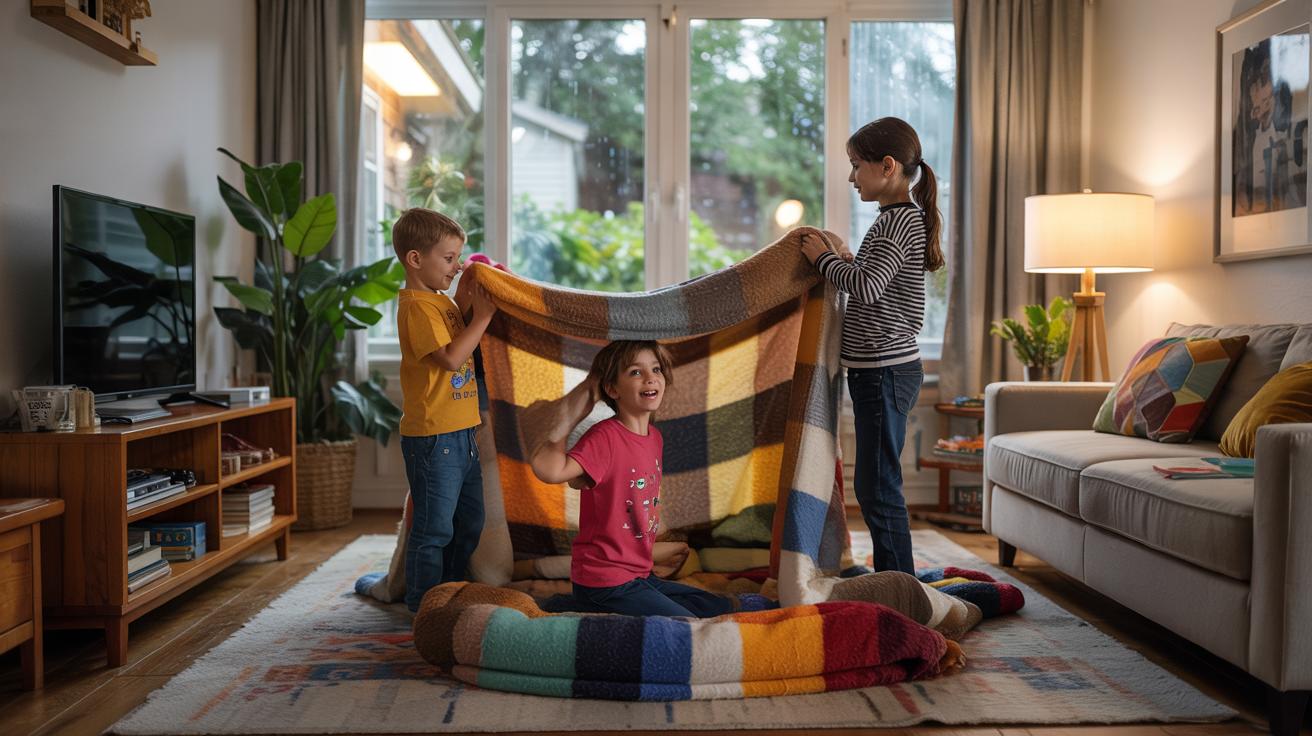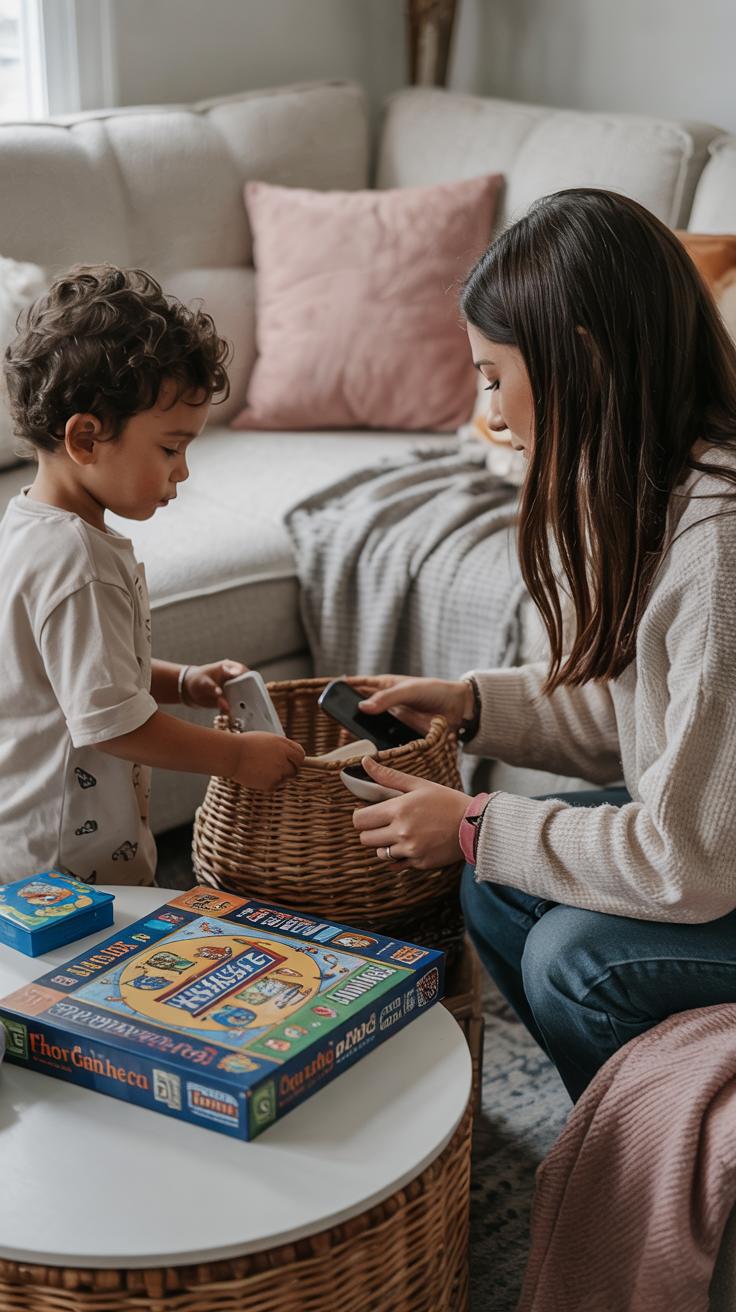Introduction
Quality time means dedicating your attention to those you care about without distractions. It is about sharing experiences that strengthen your relationships and build trust. This time sets the foundation for better understanding and deeper bonds. You might wonder how to make the most of these moments. The answer lies in simple actions and thoughtful planning that suit your unique relationships. Instead of focusing on how long you spend together, think about how well you connect during that time.
Many people struggle to find meaningful ways to connect due to busy schedules or distractions. Setting aside deliberate time for each other can improve communication and reduce misunderstandings. You will learn practical and actionable methods to enjoy quality moments that matter. What activities encourage closer connections? How can you make your shared time productive and memorable? Your relationships will benefit greatly from the insights and ideas explored here.
Understanding Quality Time
Quality time means giving your full attention to the person you are with. It involves being fully present, not distracted by phones, TV, or other tasks. Simply being near someone doesn’t create strong connections. For example, watching TV together counts as spending time but does not necessarily build closeness.
When you engage deeply in conversations, listen carefully, or work on a project together, you create meaningful interactions. These moments allow you to understand each other better and share feelings. For instance, cooking a meal together encourages teamwork and conversation, which deepens bonds.
Spending quality time helps improve communication. You open up more when people show genuine interest. Emotional bonds grow stronger because you feel valued and supported. Have you noticed a difference in your relationships when you focus fully on the person in front of you? These intentional moments build trust and connection that last.
What Quality Time Really Means
Quality time requires your full presence. Being physically close isn’t enough. When you truly listen and engage, you show the other person they matter. This means putting away distractions and focusing on the moment.
Think about a time you felt ignored versus a time you felt deeply heard. Which felt better? The moments of real connection stick with you. The amount of time spent together matters less than how you spend it.
One hour of focused conversation can be far more meaningful than several hours spent feeling separate. Quality makes relationships stronger by building understanding and emotional safety. What small changes could you make to be more present in the time you share?
The Impact of Quality Time on Relationships
Quality time improves how people relate to each other. It builds trust because you create space for honesty and openness. In families, focused moments help solve conflicts and deepen love. For example, parents who talk calmly with children daily often see better behavior and closeness.
Friendships grow when you share activities that matter, like hobbies or meaningful talks. These times create memories and show you care. Couples benefit by strengthening their emotional bond. Sharing a walk or discussing goals can increase understanding and reduce misunderstandings.
Frequent quality time encourages emotional support. You become more aware of each other’s needs and feelings. How does your relationship change when you set aside distractions to truly connect? This focus brings people closer and helps relationships thrive.
Setting Priorities for Connection
Finding time for meaningful connection can feel like a challenge when life gets busy. You juggle work, school, chores, and countless tasks that fill the day. Yet, prioritizing quality time with those you care about is key to strong relationships.
Look closely at your schedule. Where are small breaks hidden? Maybe the morning coffee, a short walk, or the moments before sleep. These pockets of time offer chances to connect. You can also decide to block out specific hours just for loved ones, treating them as appointments that cannot be missed.
Making this choice shows you value your relationships. It may require saying no to other demands or cutting back on distractions. Before long, intentional moments become a habit that nurtures your bonds. What small change can you make today to set connection higher on your list?
Making Time Against Busy Schedules
Stop and track your daily activities for a few days. Where do distractions take up time? Phones often pull attention away. Silence notifications and put devices away during planned connection times.
Mark dedicated slots in your calendar for family or friends. Whether it’s a weekly dinner or a daily 15-minute check-in, regularity helps make it real. Let others know these moments matter to you, so they respect the time just as much.
If spontaneous chances come up, say yes. For example, a walk or a quick call can bring you together when schedules clash. What routine can you create to protect your time for others without feeling rushed or overwhelmed?
Commitment as a Key to Success
Deciding to keep quality time a priority will not always be easy. Making a firm commitment strengthens your ability to follow through. Write down why connection matters to you and revisit it when motivation fades.
Invite those you care about to plan these times with you. When everyone helps choose when and how to spend time, you all feel responsible for keeping the promise. Celebrate even small successes to keep spirits high and emphasize the positive impact.
How can you remind yourself daily that connection needs care? Keeping commitment alive turns moments together into lasting memories.
Choosing Activities That Matter
Meaningful interactions happen when you choose activities that fit the interests and needs of everyone involved. Consider what brings joy, sparks curiosity, or offers relaxation. Some people connect through active experiences; others prefer calm moments. Think about mixing creative projects like painting or simple walks outdoors. These activities give space for talking and listening.
You can also select tasks that invite teamwork, like gardening or puzzle-solving. These allow people to cooperate and support each other naturally. Ask yourself what makes each person feel seen and valued. Balance energetic activities with peaceful ones to keep everyone comfortable and engaged.
Choosing with care means recognizing when a quiet moment is better than a noisy game, or when learning something new together beats routine. When you focus on shared values and interests, your time will feel rewarding and deepen your bond.
Activities for Conversations and Sharing
Cooking together offers more than a meal; it’s a chance for real conversation. While chopping vegetables or stirring ingredients, you can chat about hopes, challenges, or memories. Going for walks encourages casual talk in a relaxed setting. The natural pace gives space to open up without pressure.
Try questions like “What’s something new you want to try?” or “What makes you feel proud?” These invite thoughtful answers and keep the conversation flowing. Sharing stories about your day or dreams for the future helps build understanding.
Choosing activities that encourage talking will strengthen your connection and make each moment feel meaningful. Focus on listening with curiosity as you share these experiences.
Fun and Relaxing Ways to Connect
Playing games, making crafts, or watching a movie can bring lighthearted fun into your time together. These activities create easy opportunities for laughter and help everyone loosen up. Simple card games, drawing, or building something with Lego can spark joy and teamwork.
Light moments reduce stress and build warmth in relationships. Shared laughter reminds you that time together can be enjoyable as well as meaningful. Even calm entertainment like listening to music or doing a puzzle invites quiet connection.
Choose activities that fit your group’s energy—sometimes fun means being silly, and other times it means relaxing side by side. These times deepen bonds by making being together feel good and natural.
Listening and Communicating Effectively
Quality time becomes truly meaningful when everyone feels heard and respected. Active listening plays a key role in this process. When you listen attentively, without interrupting, you show that you value what others share. This opens the door to trust and deeper connections.
Try to focus fully on the speaker, noticing their words, tone, and body language. Nodding or giving brief verbal signs like “I see” encourages them to continue. Ask clear questions if something is unclear, like, “Can you tell me more about that?” or “How did that make you feel?” This shows you want to understand.
By listening carefully and responding with empathy, you create a safe space where honest conversations happen. Ask yourself how often you let others finish their thoughts before jumping in. Could focusing more on listening improve your relationships?
Practicing Active Listening
To practice active listening, start by giving your full attention. Put away distractions like phones or TV. Let the speaker talk without interrupting or planning your reply while they are still speaking.
Reflect on what you hear by repeating it back in your own words: “So you’re saying that…” This confirms you understand correctly. When you ask questions, keep them open-ended to encourage sharing, like “What happened next?” or “How did you handle that?”
Show empathy by acknowledging feelings: “That sounds frustrating” or “I can see why you’d feel that way.” These responses help the speaker feel valued. How might your conversations change if you listen more thoughtfully and respond with care?
Expressing Yourself Clearly
Sharing your thoughts clearly means being honest while showing respect. Speak about your feelings using “I” statements such as “I feel upset when…” instead of blaming others. This prevents misunderstandings and invites dialogue.
Try to explain what you mean without rushing or growing defensive. Take your time to find the right words. Vulnerability helps deepen trust. You might say, “I want to share something that’s been on my mind” to open a genuine exchange.
Being open doesn’t mean sharing everything at once. Choose moments during your quality time that feel comfortable. How can you balance honesty with kindness in your conversations? What’s one thing you could express more clearly this week?
Creating Rituals and Traditions
Regular rituals or traditions help you carve out steady, intentional quality time. When you keep a habit happening at the same time or place, it builds anticipation. Everyone looks forward to it, which brings excitement and focus. This shared expectation strengthens your bond.
Simple rituals can create lasting memories by linking moments together in a pattern you repeat. For example, a family might have Sunday dinners where everyone shares their week. A group of friends might check in with a weekly phone call. Couples could set aside Friday evenings for a walk or a movie night. These habits do not need to be elaborate. The key is consistency and meaning.
Think about a routine you already enjoy. How can you turn it into a ritual? What small tradition fits your group’s lifestyle? Regular rituals make quality time reliable, inviting, and memorable.
Benefits of Regular Rituals
Rituals give your relationships stability. When life gets busy or stressful, these routines act as grounding points. They remind everyone that connection matters, regardless of what else is happening.
Rituals promote a sense of togetherness. They encourage you to pause and focus on each other. This focus builds trust and comfort over time. When you follow the same tradition, it creates a feeling of safety.
Have you noticed how rituals can lift your mood during tough days? They offer familiar moments that bring comfort and connection. This steady quality time helps relationships stay strong through challenges.
Ideas for Meaningful Traditions
Create traditions that match your group’s pace and interests. You might try weekly game nights, where everyone plays a favorite board or card game. Monthly outings to a park, museum, or new restaurant can bring fresh experiences together.
Annual celebrations also work well. These could be simple, like baking together for a holiday or volunteering as a group each year. Personalize your traditions so they feel special to everyone involved.
Ask yourself what activities bring your group joy. How can you repeat them regularly? When you tailor traditions to your unique group, you make quality time something everyone values and anticipates.
Balancing Technology Use
Technology can both help and hinder your moments together. Devices often steal attention from face-to-face conversations, pulling focus away with notifications or endless scrolling. When screens dominate, you miss subtle cues and shared experiences that build connection.
Setting clear guidelines around screen time helps protect your quality moments. Try agreeing on tech-free periods like during meals or outings, where phones stay out of reach. This practice creates space to engage meaningfully without distractions.
You can also use technology to bring you closer. Sharing photos, playing interactive games, or video chatting when apart keeps bonds alive. The key lies in choosing tech activities that invite interaction instead of isolation. How can your devices serve your relationships rather than interrupt them?
Recognizing Digital Distractions
Common tech interruptions include checking phones during talks, answering messages in the middle of meals, or scrolling while watching a movie together. These habits fragment attention and make others feel unvalued.
When your mind splits between a screen and a person, connection weakens. It becomes harder to listen, respond, or remember what was shared. Over time, these interruptions can erode trust and closeness. How often do you catch yourself reaching for a device instead of focusing on the person in front of you?
Using Technology to Enhance Connection
Phones can support quality time when used with purpose. Try sharing photos from your day or sending thoughtful messages between meetups. Video calls let you see expressions and share moments when distance separates you.
Designate certain areas or times as tech-free zones. For example, no devices at the dinner table or during family game night encourages full attention. Balance is key—use technology to complement your time together, not replace it. What small technology habits could you change to deepen your connections?
Adapting Quality Time for Different Relationships
Quality time means different things depending on who you are with. Your approach to family, friends, or romantic partners needs to fit those relationships and what makes them strong. Each group has unique ways to communicate and enjoy activities together.
When spending time with family, routines often build trust. Family dinners or working on house projects together create shared moments that strengthen bonds. These simple activities give everyone a chance to talk and cooperate. What habits does your family already share that bring you closer?
Friendships and romantic partnerships often benefit from intentional conversations and hobbies you both enjoy. Deep talks about feelings or goals build understanding, while joining a club or learning a new skill together creates memories. How could you open a meaningful conversation with a friend or partner today?
Thinking about these differences helps you use your time wisely. You can make the moments count without forcing activities that don’t fit. What small change will you try to make your quality time more meaningful?
Quality Time with Family
Meals offer a natural way to connect with family. Sitting down to eat allows everyone to pause and share their day. You might create a rule to keep phones off during dinner. Shared chores also promote teamwork. Washing dishes or gardening together gives a sense of accomplishment and cooperation.
Try scheduling regular family game nights or weekend walks. These habits set a clear time for being together. They provide spaces to listen and support each other without distractions. Are there simple routines your family could add that don’t take much time but bring more connection?
Friends and Romantic Partners
With friends and romantic partners, choose activities that encourage communication or shared joy. Going for walks, cooking meals, or enjoying hobbies side by side often open room for conversation. Ask questions that invite honest answers, like “What has been on your mind lately?”
Planning something new together sparks excitement and draws you closer. It could be as simple as trying a new sport, reading the same book, or exploring a new place. Think about what you both enjoy and build from there. How will you make your next hangout more about connection?
Overcoming Obstacles to Spending Quality Time
Busy schedules, stress, and different interests often get in the way of spending meaningful time together. You might feel pulled in many directions or worry that your efforts won’t be met with the same energy. Identifying these barriers helps you address them wisely. Are there times during the day when you can pause for a quick chat or a shared meal? Small adjustments can make a big difference.
Try to plan activities that suit everyone involved. Sometimes, this means combining interests or alternating who chooses the activity. Using calendars or reminders can prevent last-minute stress and double bookings.
Remember to stay flexible. Plans might need to change, and that’s okay. Being patient with yourself and others keeps the focus on connection, not perfection. How do you usually handle unexpected changes in your plans? Finding calm amidst chaos can help preserve those important moments.
Finding Opportunities Despite Challenges
When time feels scarce, look for short pockets where connection fits naturally. Could you turn a daily commute into a time for conversation? Sharing simple routines like walking the dog or cooking together helps build bonds without extra planning.
Switching up plans creatively can also open new doors. If a long evening outing isn’t possible, try a quick game or watch a favorite show together. Adjusting expectations keeps quality time realistic and enjoyable.
Ask yourself, what small moment today could become a chance to connect? Noticing these opportunities turns busy days into meaningful days. Which regular moments might you start seeing differently?
Keeping Patience and Flexibility
Maintaining a positive attitude helps when plans don’t go smoothly. Recognize that interruptions or delays happen to everyone. Instead of frustration, try to focus on what you can control.
Being flexible means accepting changes and adapting your approach. If someone’s tired or distracted, maybe listen more or offer a calm activity rather than pushing for engagement.
Patience allows relationships to grow naturally, even when life feels hectic. How can you remind yourself to stay calm and open during stressful times? Giving yourself permission to adjust plans keeps quality time alive and reduces pressure on everyone involved.
Measuring the Impact of Quality Time
After spending intentional moments together, take time to reflect on how those experiences affect your relationship. Pay attention to changes in how you communicate. Are conversations more open and honest? Notice whether moods during and after your time together improve. Do you feel lighter, more relaxed, or happier?
Watch for signs of increased closeness. Maybe you enjoy each other’s company more or feel a stronger sense of trust. These are indicators that your quality time is making a difference.
Use simple tools like keeping a shared journal or rating your connection on a scale during weekly check-ins. Ask yourself, “What felt meaningful today?” or “How can we make this better?” Tracking progress helps you see what actions bring the best results. Adjust your focus based on what you learn, making your time together more rewarding over time.
Signs of Stronger Connections
One clear sign of a stronger connection is open communication. When you both feel comfortable sharing thoughts without judgment, your bond grows.
Enjoyment during your interactions also signals healthy closeness. Laughing, feeling engaged, and looking forward to your time together show progress.
Another sign is a decrease in conflicts. When disagreements happen, they become easier to resolve or occur less often. This reflects a deeper understanding and respect between you.
Ask yourself: Do conversations feel easier now? Are you more patient and forgiving? These clues tell if your relationship is strengthening.
Adjusting Your Approach
After reflecting on what works, modify your activities or routines to better fit your connection. If long talks sparked closeness, schedule more of those. If active outings feel right, plan them regularly.
Check in with each other often to find out what feels meaningful. A simple question like “What did you enjoy most today?” guides your adjustments.
Commit to ongoing improvement, knowing that the way you spend time together may evolve as you grow. Flexibility keeps your bond alive and helps you make the most of your moments.
Consider: How will you change your next quality time to deepen your connection?
Conclusions
Reflect on your current connections and ask if they would grow stronger with more intentional time. Quality time requires focus but rewards you with trust and understanding. Choose activities that fit your personalities and interests to keep engagement high. Regularly make an effort to turn common moments into special ones. These habits deepen your ties and create a supportive environment for all involved.
By applying these meaningful ways to spend time together, you show care more vividly than words alone. Keep conversations open and listen actively to maintain your connection. Adjust your plans as your relationships evolve. The goal is to share presence and attention that leave a lasting positive impact. Starting now, make the choice to prioritize quality time and watch your relationships flourish.

























